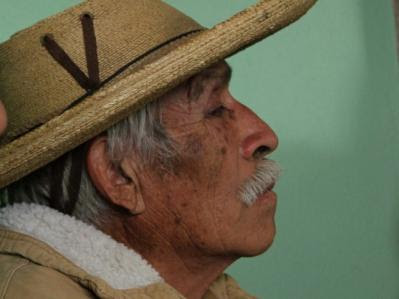
News

Letter from Alberto Pátishtan’s community of El Bosque, Chiapas
El Bosque, Chiapas, June 6, 2012.
Movement of the People of El Bosque,
For the freedom of Alberto Gomez Pátishtan.
From the community of El Bosque, Chiapas, the birthplace of Professor Alberto Gomez Pátishtan, we thank you very much with all our hearts for the support and solidarity of thousands of compañeros and compañeras who have joined the movement for the freedom of our brother Alberto Pátishtan.
As the Movement of the People of El Bosque, Chiapas, we support the call for the second week of worldwide struggle for the freedom of the political prisoners in Chiapas: Alberto Pátishtan and Francisco Sántiz López (from 8 to 15 June).
We would like to send greetings to the compañeros:
-To the Movement for Justice in El Barrio, New York
-Human Rights Defenders
-International Organizations
-Collectives
-And to all our brothers and sisters throughout the world.
Freedom for Political Prisoners!
The Movement of the People of El Bosque is with you both here and there.

Movement for Justice in El Barrio: Raúl Zibechi for the freedom of Patishtán and Sántiz López
“They are two justices for two opposed worlds. One day our justice shall judge those from above…”:
From Uruguay, Raúl Zibechi issues his support for the “Second Week” in new letter
Compañeras and compañeros:
On behalf of all the immigrant members of Movement for Justice in El Barrio, The Other Campaign New York, we send you affectionate greetings.
In many corners of Mother Earth, the multiple actions planned as part of the “Second Week of Worldwide Struggle for the Liberation of Patishtán and Sántiz López: Bringing Down the Prison Walls!” begin today and last until next Friday, June 15. It gives us great pleasure to welcome you to this second phase in our struggle to free our compañeros, unjust prisoners and hostages of the ambitions of the capitalists and their bad government of Mexico.
To begin this week, we wish to share with you a profound and powerful letter that our Uruguayan comrade, Raúl Zibechi, has written for this occasion. The letter tears apart the unjust punitive logic of those from above and reveals the existence of the two “justice” systems of inequality between those from above and us, those from below. The full text of this moving letter is attached below.
During the following seven days, our dignities will manifest in sync and stronger than ever, echoing the just call that now has a global reach and historical resonance.
More so, we send you once again the most recent message from our sisters and brothers of the Zapatista Good Government Council of Oventic. In this message, our compas demand that the three levels of bad government in Mexico immediately release our compañero Francisco Sántiz López, who has been imprisoned for six months and is a member of the Zapatista support base. The full message is available here:
For more information regarding the history of this national and international struggle, see the video, “Bringing Down the Prison Walls!: The Fight for the Liberation of Patishtán and Sántiz López available here:
We ask that you all please circulate widely the letter and the videos—because the only remedy to the bad government’s lies is the true word touching new hearts of our people.
Our thanks go out to all those who are set to mobilize their honorable efforts to achieve the fulfillment of our shared demand. We want to remind you as well to please keep us all abreast of the activities you are carrying out by sending us updates and chronicles. You may do so via:
Movimientoporjusticiadelbarrio@yahoo.com
With love and solidarity,
From El Barrio, New York.
Movement for Justice in El Barrio
The Other Campaign New York.



